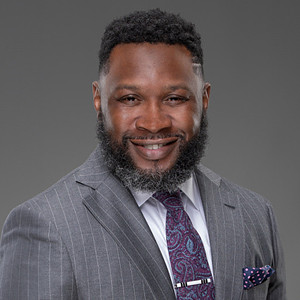
Causation is an essential element of just about every personal injury claim, in Lawrenceville as well as anywhere else. If you can’t prove causation, you can’t win.
In some cases, such as employer liability for employee misconduct, it is not the defendant who must have caused the injury, but another party. Nevertheless, the plaintiff must prove that the appropriate party caused the injury.
Context: The Elements of a Negligence Claim

More personal injury claims are blamed on negligence (carelessness) than on any other form of misconduct. Most negligence claims are based on vehicle accidents, such as car accidents, truck accidents, motorcycle accidents, and more. The four facts you have to prove to win a negligence claim are:
- The defendant owed the injured party a duty of care;
- The defendant breached their duty of care;To win most personal injury claims, you’ll need to establish that the at-fault party caused the accident or incident in question. Learn more about causation here.
- The plaintiff suffered an injury; and
- The defendant’s breach of duty caused the injury.
Negligence is not the only possible basis of a personal injury claim. Other bases of personal injury claims include strict liability claims, product liability claims, and intentional torts. However, all of these claims require proof of causation.
The Two Forms of Causation
Georgia personal injury law recognizes two distinct forms of causation: factual cause and proximate cause.
Factual Cause
“Factual cause” is what most of us think of when we speak of causation. If X was the factual cause of Y, then Y wouldn’t have happened unless X had happened first. If I ran a red light and smashed into your car, the car accident wouldn’t have happened if I hadn’t run the red light. Take away the cause, and you automatically take away the effect. If Y would have happened anyway, then X was not the cause in fact of Y.
Proximate Cause
Proximate cause is present when the link between cause and effect is close enough to make it fair to hold the defendant liable. Proximate cause would be absent if the defendant’s misconduct set in motion an unpredictable chain of events that nobody would ever suspect would lead to the harm that actually occurred (see below for some examples).
Factual Cause Without Proximate Cause
Following are some examples of scenarios where factual cause might be present, but proximate cause might not be:
- Unexpected chain reactions: Joe negligently leaves a skateboard on a sidewalk. Janet trips over the skateboard and falls onto a two-by-four, which catapults a shovel into the air and lands on the head of a pedestrian walking 25 feet away.
Joe’s misconduct of leaving the skateboard out was indeed the factual cause of the pedestrian’s injury. The unforeseeable chain of events, however, might have broken the chain of proximate cause. - Intervening criminal act: A property owner fails to repair a lock on his gate. A month later, a trespasser enters the property through the gate, kills the property owner’s guest, and disappears. The guest’s family sues the property owner for wrongful death, since the guest would not have died if the owner had fixed the lock. The property owner has an argument that the murderer’s criminal act broke the chain of proximate cause between his negligence and the death of his guest.
- Intervening act of nature: A business fails to properly maintain its roof, resulting in loose tiles. An unexpectedly severe storm launches the tiles into the air and injures someone several hundred yards away. The business has a potential defense that, although poor maintenance was the factual cause of the injury, the proximate cause was the unexpected severity of the storm.
- Third-party actions: A driver illegally parks their car, thereby blocking a sidewalk. A pedestrian walks into the street to avoid the car and is injured by someone recklessly driving a “getaway car” after a bank robbery.
Although the illegal parking was a factual cause of the pedestrian’s decision to walk in the street, a court might consider the criminal’s reckless driving to be an unforeseeable intervening cause that broke the chain of proximate causation.
Under any of the foregoing scenarios, the plaintiff could win or lose – the case could go either way. In these examples, it very well may come down to the skills of each side’s legal representation.
A Skilled Lawrenceville Personal Injury Lawyer Can Help You Establish Causation
To win your claim, you must prove causation with admissible evidence. That’s not necessarily an easy task. An experienced Lawrenceville personal injury lawyer, however, will have proven causation many times before.
The best part of hiring a personal injury lawyer, however, is the contingency fee system. Under this system, you only pay attorney’s fees if you get compensation. If you lose, your lawyer works for free. Contact us today at (678) 446-3655 to schedule a free consultation.
